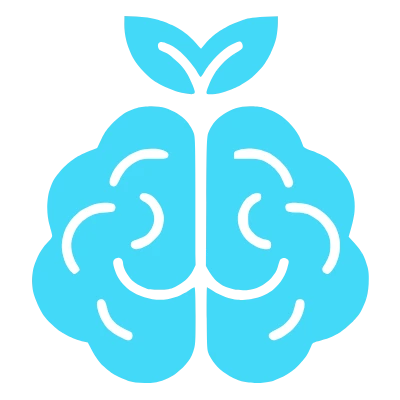Main focuses of geriatric psychology
Psychology in the elderly, known asgeriatric psychology, is a specialized branch of psychology that focuses on the study and treatment of psychological aspects related to aging and old age. It focuses on understanding and addressing the emotional, cognitive and social challenges and changes that older people face.
Geriatric psychologists work with older adults to help them cope with various difficulties that may arise during this stage of life, such as the loss of loved ones, loneliness, changes in physical and mental health, memory problems, and difficulties adapting to new environments or circumstances.
An important aspect of geriatric psychology is the evaluation and treatment of common mental disorders in older people, such as depression, anxiety, cognitive impairment and sleep disorders.
In addition to working directly with older adults, geriatric psychologists also collaborate with other health professionals, such as physicians, nurses and social workers, to provide a comprehensive approach to the care of older people.
Geriatric psychology is also concerned with promoting emotional and mental well-being in older adults, promoting active and healthy aging. This involves helping older adults maintain an active social life, participate in meaningful activities, maintain a good quality of life, and develop coping strategies to adapt to the challenges of aging.
In summary, geriatric psychology is a discipline dedicated to the study and treatment of the psychological aspects of aging and old age, with the objective of improve the quality of life of older adults and promote healthy aging.

What are the psychological needs of older adults?
Older adults have specific psychological needs that may be different from those at other stages of life. Below, we present some of the most common psychological needs at this stage:
- Sense of belonging and social connection: need to feel connected to others and maintain meaningful relationships. Social isolation can be detrimental to their psychological well-being, so it is important that they have opportunities to interact with family, friends, and the community at large.
- Autonomy and control: Despite the physical changes and limitations they may experience, older adults need to maintain a sense of autonomy and control over their lives. Allowing them to make decisions and participate in activities that interest them can contribute to their psychological well-being.
- Sense of purpose and meaning: need to have asense of purpose and meaning in their lives. This can come from activities such as volunteering, passing on knowledge, or enjoying hobbies and activities that bring them satisfaction.
- Emotional stability: As people age, they may face emotional challenges, such as changes in their mood or the loss of loved ones. It is important that older adults have emotional support and access to resources that help them manage their emotions and adapt to changes.
- Feeling of security: Older adults may worry about their physical and emotional safety. Feeling protected and safe in your environment is essential for your psychological well-being. This means having access to appropriate medical care, living in a safe environment and receiving support if you need it.
- Cognitive stimulation: Keeping the mind active and stimulated is vital at this stage. Engaging in activities that challenge your cognition, such as memory games, reading, learning new skills, or participating in educational programs, can help maintain your mental health and prevent cognitive decline.
It is important to keep in mind that psychological needs can vary from one person to another, and it is essential to address them on an individualized basis. A comprehensive approach that includes social support, health care, cognitive stimulation and emotional well-being can help meet the psychological needs of the elderly.
What are the main areas of mental health in older adults?
The main areas of mental health in older adults are the following:
- Depression: depression is a common mental health condition in older adults. It can be triggered by factors such as the loss of loved ones, chronic health problems, social isolation, or difficulties adjusting to changes related to aging. Depression can negatively affect the quality of life and general well-being of older adults.
- Anxiety: Anxiety is another mental health condition that can affect older adults. It can manifest itself in the form of excessive worry, constant fear, or panic attacks. Anxiety can be caused by different factors, such as physical health, stress, changes in the environment or loss of skills.
- Sleep disorders: Sleep disorders, such as insomnia or sleep apnea, are common in older adults and can have a significant impact on their physical and mental well-being. Changes in sleep patterns, difficulty falling or staying asleep, and feeling like you are not getting enough rest may be indicators of sleep disorders.
- Dementia: Dementia, with Alzheimer’s as the most common form, is a neurodegenerative disease that primarily affects older people. It is characterized by the progressive loss of memory, cognitive ability and thinking skills. Dementia can have a significant impact on older adults’ mental and emotional health, as well as their daily functioning and ability to relate to others.
- Substance abuse: Substance abuse, including alcohol and prescription drugs, can be a mental health problem in older adults. Life changes, such as retirement or the loss of loved ones, can contribute to substance abuse as a way to cope with anxiety, depression, or loneliness.
- Loneliness and social isolation: Loneliness and social isolation are important problems in the mental health of older adults. The loss of loved ones, retirement, reduced mobility, or a lack of opportunities to socialize can lead to loneliness and isolation, which in turn can increase the risk of depression, anxiety, and other mental health problems.
It is important to note that these are just some of the main aspects of mental health in older adults and that each individual may experience a unique combination of challenges and needs in this area. It is essential to seek appropriate support and treatment, as well as promote a comprehensive approach to mental health and well-being at this stage of life.






